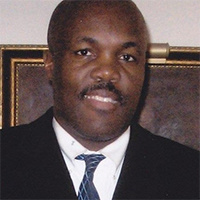East Amherst Felony Lawyer, New York
Sponsored Law Firm
-
 x
x

Click For More Info:
-
Cohen & Bernstein, L.L.C.
1360 Clifton Ave #309 Clifton, NJ 07012» view mapCriminal Defense We’re In this Together!
We work hand in hand with our clients to ensure all of your questions are answered and progress through your legal issue is seamless.
800-978-7341
Not enough matches for East Amherst Felony lawyer.
Below are all East Amherst Criminal lawyers.
Derek Akiwumi
✓ VERIFIEDAccident & Injury, Criminal, Divorce & Family Law, Estate, Bankruptcy & Debt
Derek Akiwumi, representing clients throughout WNY, has a proven reputation for getting the results you need. From criminal defense, appeals, and pers... (more)
Gary A. Joseph
Criminal, Misdemeanor, Personal Injury, Residential Real Estate
Status: In Good Standing
FREE CONSULTATION
CONTACTSurinder Kaur Virk
Accident & Injury, Bankruptcy, Criminal, Divorce & Family Law
Status: In Good Standing Licensed: 23 Years
Steven Michael Cohen
Wrongful Termination, Divorce, Criminal, Personal Injury
Status: In Good Standing
Richard Anthony Adamy
Criminal, Employee Rights, Employment
Status: In Good Standing Licensed: 61 Years
 Lindsay Bernstein Clifton, NJ
Lindsay Bernstein Clifton, NJ Practice AreasExpertise
Practice AreasExpertise

